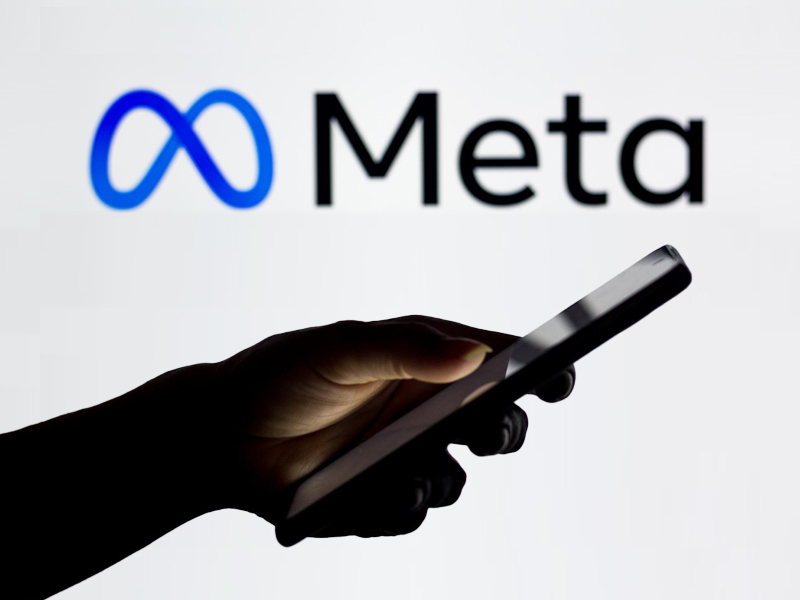What is Worldcoin and what does scanning the iris involve?
04/03/2024Worldcoin was introduced in summer of 2023 as a revolutionary project with the mission of creating a 100% secure digital identity, essentially a kind of fortified "digital passport," based on the verification of a unique and non-transferable element inherent to each human being—the iris. According to its developers, World ID will help distinguish human online activity from that generated by machines. In the first phase of the project, the creation of this secure digital identity is planned for 2 billion humans. To make this possible, Worldcoin has called on the global population to scan their iris. In return, Worldcoin compensates participants with a few tokens of its successful cryptocurrency, WLD, which has quadrupled in value within a few weeks of its initial launch. The payment in WLD tokens is not coincidental; it is part of Worldcoin's strategy, aiming to leverage the new digital passports to create a comprehensive ecosystem that provides universal and equitable access to advanced financial services for the entire global population. To achieve this, they encourage "iris sellers" to use the Worldcoin cryptocurrency on its fee-free blockchain, unlike Bitcoin, Ethereum, or other cryptocurrencies that do charge transaction fees. How does Worldcoin work? Worldcoin aims to address the issues of bots, rapid creation of fake identities, and content with artificial intelligence. It is designed, according to its developers, to provide every individual in the world with a unique digital identification. Additionally, Worldcoin promises to ensure the financial inclusion of each person in a fair and equitable ecosystem through a universal basic income. Users receive this income in exchange for allowing their iris to be scanned. To create the secure digital passport with Worldcoin, users must undergo an iris scan, which serves as proof of humanity and a unique identity on the blockchain. This process ensures that the individual on the other side of that identity is a human and not a fake profile created with artificial intelligence. In pursuit of the success of their proposal, the company offers users a small amount of their own Worldcoin tokens in exchange for iris scanning. The initial incentive of receiving free cryptocurrency, in the form of a universal basic income, is emphasized by Worldcoin advocates as the basis for the inclusive and universal nature of their initiative. This approach allows anyone to scan their iris, and the WLD tokens received in return can assist people without access to traditional financial services in starting to save and invest. How to Scan the Iris with Worldcoin? The registration process with Worldcoin involves scanning the iris with an orb, the central hardware device of Worldcoin developed by Tools for Humanity. The orb is spherical and processes all the information. Currently, Worldcoin has installed orbs in different countries, including Spain, where users can scan their iris in exchange for Worldcoins. To do this, it is necessary to download the Worldcoin mobile application, World ID, generate a QR code with it, and display it in front of the orb. The orb, upon recognizing it, will scan the user's iris, while a Worldcoin collaborator remotely oversees the operation. The orb takes less than a minute to perform the scan and validate the subject's identity. In exchange for their iris, the user receives a unique number called "IrisHash" and a cryptographic wallet with Worldcoins. "This digital passport is accepted as proof of unique humanity, which people can use in the digital world without the need to share any other data," assure its developers. What happens with my scanned iris in exchange for Worldcoins? Once the iris scan is completed, and digital identity is granted to the user, Worldcoin assures that the orb quickly eliminates the images unless the user requests their preservation. Only the set of numbers called "IrisHash" is stored for identification, without any additional biometric data. Worldcoin also commits to ensuring that users share only the necessary information they wish to share, providing verification options through linked devices or the additional facial authentication orb for high-security cases. Despite these commitments, the collection of biometric data through iris scanning for the unique proof of humanity continues to raise significant questions regarding privacy and information security. Some countries such as Brazil, France, India, or Kenya have halted Worldcoin's iris scanning. How much do you get paid for scanning your iris? Worldcoin pays 25 WLD for scanning your iris, which, according to the cryptocurrency's exchange rate in February 2024, has translated to an average of between 50 and almost €160 for iris sellers, depending on the value of Worldcoin on the day they scanned their iris. At the beginning of February, the value of each WLD unit was around two euros, and by the end of the month, it had risen to nearly seven euros. What can I spend my WLD on? 'Iris sellers' have the freedom to use their Worldcoins from the moment they receive them. They can exchange the payment for other cryptocurrencies, withdraw them in euros from a specialized ATM, or hold onto the tokens in the hope of an increase in their value. Additionally, WLD payments are already accepted on platforms such as Discord, Shopify, Minecraft, Telegram, Mercado Libre, or Reddit, among other places. Who is behind Worldcoin? Worldcoin bears the stamp of two innovative minds: Sam Altman and Alex Blania. Altman is the CEO of OpenAI and a key figure in artificial intelligence development, leading projects like ChatGPT. Blania, on the other hand, is the co-founder of Tools For Humanity, contributing his experience in creating technological tools for a more equitable economic system to this new and successful cryptocurrency.
[ ... ]
HDMI Cables
We offer a wide range of HDMI cables. We help you connect comfortably and safely your devices (PCs, decoders, smartphones, tablets, etc.) to a monitor or television and get the best definition and sound quality! Depending on your needs, you can choose cables with HDMI connectors at both ends or opt for HDMI to VGA, Mini DisplayPort, and DVI adapters.
[ ... ]
Cookies
A cookie is a file that is downloaded to your computer to access certain web pages. Cookies allow a website, among other things, to store and retrieve information about the browsing habits of a user or their equipment and, depending on the information they contain and how you use your computer, they can be used to recognize the user. However, this only means obtaining information related to the number of pages visited, the city assigned the IP address from which you accessed, the number of new users, frequency and recurrence of visits, time of visit, the browser or the operator or terminal type from which the visit takes place. In no event will data be obtained about the full name or address from which the user is connected. The cookies used on this website and the specific purpose of each one are: UTMA Cookie: We use this cookie to count how many times a unique user visits the site. UTMB Cookie: We use this cookie to calculate how long a user stays on a page. UTMZ Cookie: This cookie stores the visitor's origin, the path followed to access the web, either the direct access from a link on another website, from an email link using certain keywords in a search engine, through a display campaign, or through an AdWords ad. UTMC Cookie: The current JavaScript code that Google Analytics uses does not require this cookie. This cookie is used, along with the utmb cookie, to determine if after more than 30 minutes on the same page a new session should or should not be established for the user. This cookie is still written to ensure compatibility with the websites where you installed the old urchin.js tracking code. PHPSESSID Cookie: We use this cookie to identify the relevant user. You can allow, block or delete cookies installed on your computer by setting your browser options. You can find information about how, in relation to the most common browsers, on the links listed below: Explorer: http://windows.microsoft.com/es-es/windows7/how-to-manage-cookies-in-internet-explorer-9 Firefox: http://support.mozilla.org/es/products/firefox/cookies Chrome: http://support.google.com/chrome/bin/answer.py?hl=es&answer=95647 Safari: http://support.apple.com/kb/ph5042 Please note, however, that there is the possibility that disabling any cookie may prevent or hinder navigation or the provision of services offered on this website.
[ ... ]Meta warns about the vulnerability in password recovery linked to the recycling of phone numbers
22/02/2024Meta, a leader in social media, has announced that it will not assume responsibility for personal account theft on Instagram and Facebook related to password recovery through the use of recycled phone numbers. The company argues that it lacks control over telecommunications providers and users involved in this practice. Phone number recycling: an overlooked risk in a recent statement Meta revealed its inability to manage personal account thefts that occur when phone numbers are recycled by telecommunications carriers. This common practice among mobile phone companies involves reassigning discarded numbers to new customers, making them owners of a number previously used by another user. In countries like Spain, carriers wait for a period of 30 days before reassigning a number, but the risk persists if users do not unlink the number from digital services or associated platforms, such as social networks and emails. The danger of not unlinking phone numbers from digital accounts When users deactivate a phone number, whether due to a change of carrier or any other reason, carriers must wait before reassigning the number. However, failure to unlink this number from digital services can result in unauthorized access to personal accounts. In many services, linking the phone number is allowed for actions such as resetting passwords. Users, upon receiving a verification code on their number, can complete the login without the need for email validation or a password. This process, though accepted, can lead to unintentional unauthorized access. Meta warns users about the importance of unlinking phone numbers from digital accounts when deactivating them, insisting on the need to update associated information to prevent account theft.
[ ... ]Chrome flies on Mac
16/03/2022New features introduced in the las version of Chrome browser have made it up to 43% faster on Mac computers, according to Apple's Speedometer browser responsiveness benchmark. The M99 version of Chrome introduces, as main change, the use of the “ThinLTO” build optimization technique, which has integrated parts of the base code that are critical for speed, even when they span multiple files or libraries. This integration, according to the Speedometer comparison, has meant that the new Chrome is generally 7% faster than Safari, and that its graphic performance is up to 15% higher. In addition, Google ensures that the loading time of web pages has been reduced by 15% on Android, where the introduction of the 'freeze-dried' tab loading process in the browser has also reduced the startup times by 13%.
[ ... ]WhatsApp improves security in its desktop version
14/03/2022In accordance with the growing use of WhatsApp in the desktop version and with the aim of guaranteeing users maximum security, Meta has announced that has implemented in this app, a new security layer called Code Verify that acts as an open source browser extension verifying automatically the authenticity of the web code of this application. According to Meta, which has offered this utility to other services to use it, Code Verify allows web browsers to verify that the resources they obtain have not been tampered with. "When someone uses Code Verify, the extension automatically compares the code that is executed in WhatsApp Web with the version of the code verified by WhatsApp and published in CloudFlare", has said the company, who also explains that if any violation or inconsistency is detected , the user will receives a notification, immediately. This new WhatsApp code verification, which Meta has confirmed does not record metadata or user data or share information with the application, will be available in the official browser extension stores for Google Chrome, Microsoft Edge and Mozilla Firefox.
[ ... ]





